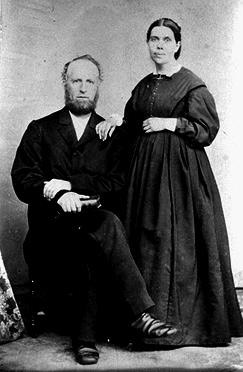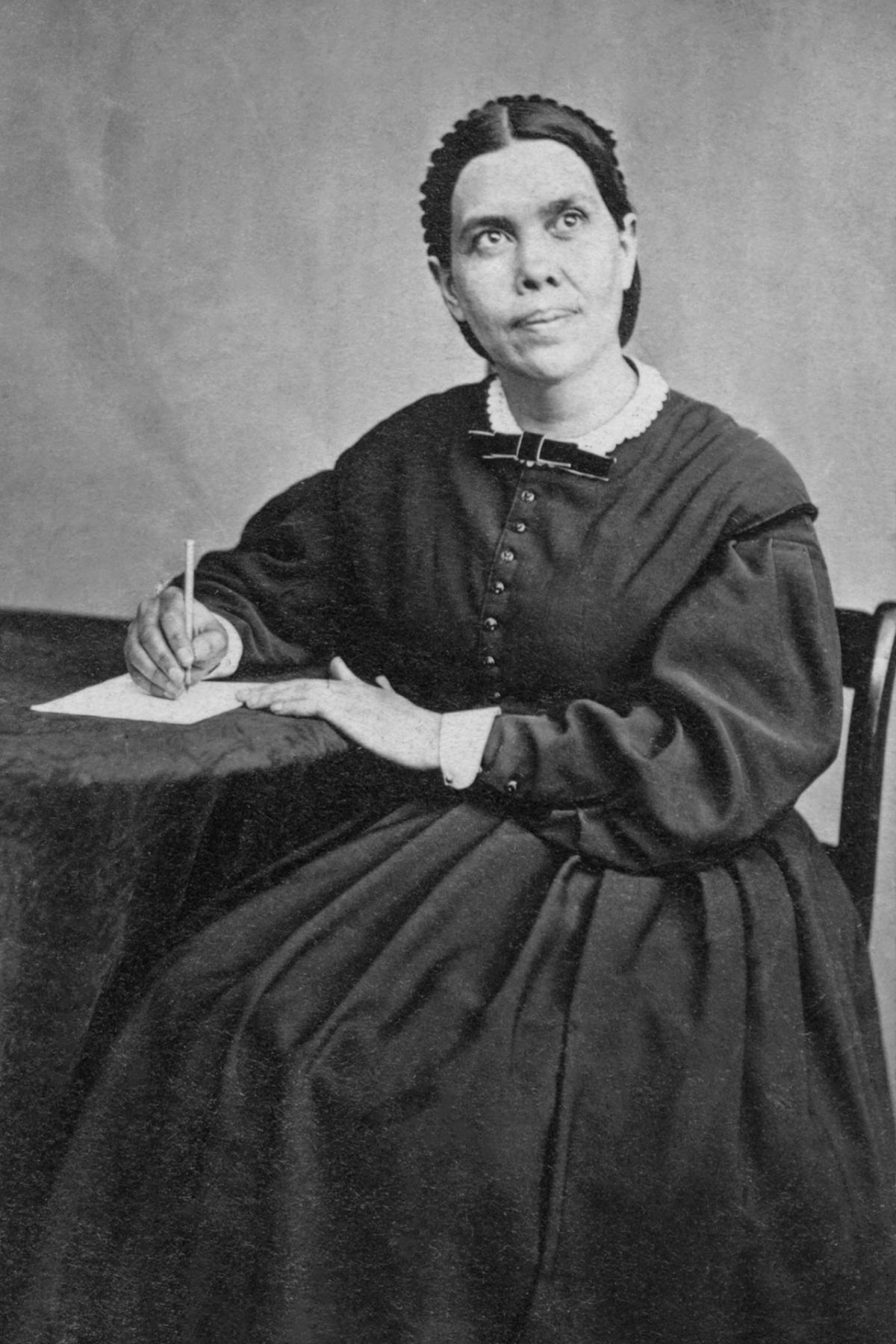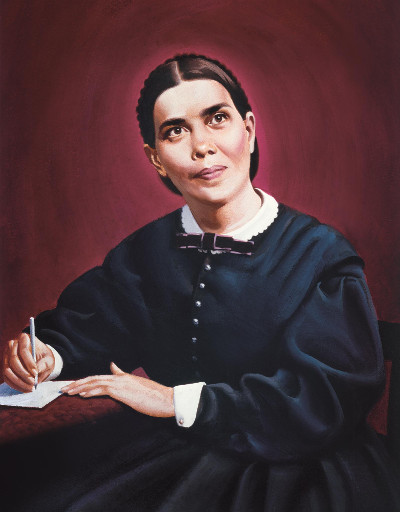ellen g white info
Associated Articles: ellen g white info
Introduction
On this auspicious event, we’re delighted to delve into the intriguing matter associated to ellen g white info. Let’s weave fascinating data and supply contemporary views to the readers.
Desk of Content material
Ellen G. White: A Lifetime of Affect and Controversy

Ellen G. White (1827-1915) stays one of the crucial influential and controversial figures in Christian historical past. A prolific author and co-founder of the Seventh-day Adventist Church, her life and writings proceed to form the beliefs and practices of hundreds of thousands worldwide. Understanding her influence requires analyzing not solely her intensive literary output but in addition the historic context by which she lived and the criticisms leveled towards her legacy.
Early Life and the Nice Controversy:
Born Ellen Harmon in Gorham, Maine, White skilled a comparatively humble upbringing. Her childhood was marked by sick well being, a recurring theme all through her life. This fragility, coupled with a deep non secular craving, contributed to her early non secular experiences. On the age of seventeen, through the Second Nice Awakening, she underwent a profound non secular conversion, an occasion she described as a pivotal second in her life. This expertise, she claimed, was accompanied by visions and prophetic presents.
White’s early visions, typically described as trance-like states, supplied the inspiration for her later writings and affect. These visions, she believed, communicated God’s will and supplied steerage for the nascent Adventist motion. The core message of her visions revolved across the "Nice Controversy," a theological framework that portrays a cosmic wrestle between good and evil, culminating within the last judgment. This theme permeates her writings and varieties the spine of Seventh-day Adventist theology. She emphasised the significance of adhering to biblical ideas, observing the Sabbath, and getting ready for Christ’s second coming.
Prolific Author and Church Chief:
Over her lifetime, White authored or co-authored greater than 5,000 articles and 40 books on a variety of matters, together with well being, schooling, prophecy, and the character of God. Her writings, characterised by a transparent and accessible fashion, addressed each theological complexities and sensible elements of day by day residing. Her books on well being, equivalent to Counsels on Eating regimen and Meals, considerably influenced Seventh-day Adventist way of life selections, selling vegetarianism and a holistic strategy to well-being. Her instructional writings formed the event of Adventist colleges and schools, emphasizing the combination of religion and studying.
White’s affect prolonged past the purely theological. She performed an important function in shaping the organizational construction of the Seventh-day Adventist Church. Her counsel guided the church’s enlargement, missionary efforts, and inner governance. She advocated for the ordination of girls to ministry, a progressive stance for her time, though the complete implementation of this precept throughout the church has been a topic of ongoing debate. Her involvement within the church’s governance, nevertheless, has additionally been a supply of criticism, with some arguing that her affect concentrated energy in a approach that wasn’t fully democratic.
Theological Contributions and Key Beliefs:
White’s theological contributions considerably formed Seventh-day Adventist doctrine. Her writings elaborated on the idea of the investigative judgment, a pre-advent judgment the place God examines the lives of believers to find out their salvation. This doctrine, central to Adventist perception, is essentially primarily based on her interpretations of biblical prophecy. She additionally emphasised the significance of the Sabbath, the seventh-day of the week, as a divinely ordained day of relaxation and worship, a perception that distinguishes Adventists from different Christian denominations.
Different key beliefs influenced by White embrace the upcoming second coming of Christ, the significance of Christian way of life, and the need of evangelism. Her writings promoted a holistic strategy to religion, encompassing non secular, bodily, and psychological well-being. She advocated for temperance, abstaining from alcohol and tobacco, and emphasised the significance of wholesome consuming habits. This holistic strategy to religion and way of life continues to be a defining attribute of the Seventh-day Adventist Church.
Criticisms and Controversies:
Regardless of her vital affect, White’s life and writings have confronted appreciable criticism. One main level of rivalry revolves across the nature of her visions and prophetic claims. Critics argue that her visions lack verifiable proof and that her interpretations of scripture are subjective and lack rigorous theological scrutiny. The shortage of impartial verification for her prophetic experiences has fueled skepticism concerning the authenticity of her claims.
One other space of criticism focuses on the authority attributed to her writings throughout the Seventh-day Adventist Church. Some argue that the elevation of her writings to near-scriptural standing has stifled theological debate and impartial thought throughout the denomination. The potential for this authority to suppress dissent and restrict theological range has been a supply of ongoing concern for some members and students.
Additional criticisms goal particular elements of her writings, together with her views on race, gender, and drugs. Whereas a few of her writings advocated for racial equality, others have been interpreted as reflecting the racial prejudices prevalent in her time. Equally, her views on gender roles have been criticized as reflecting patriarchal societal norms. Lastly, her views on drugs, though selling a wholesome way of life, have additionally been criticized for typically discouraging standard medical therapy.
Legacy and Ongoing Relevance:
Regardless of the criticisms, Ellen G. White’s affect on the Seventh-day Adventist Church and broader non secular panorama stays plain. Her prolific writings proceed to be studied and debated, shaping theological interpretations and influencing the lives of hundreds of thousands. Her emphasis on a holistic strategy to religion, her advocacy for schooling and social justice, and her contributions to the event of Adventist establishments have left a long-lasting legacy.
Nevertheless, a balanced understanding of her legacy requires acknowledging each her contributions and the controversies surrounding her life and work. A vital examination of her writings, inside their historic context, is essential for a nuanced appreciation of her influence. The continuing debates surrounding her prophetic claims and the authority attributed to her writings underscore the complexity of her legacy and the necessity for ongoing vital engagement along with her work. Her life and writings function a case examine within the complexities of non secular management, the interaction between private expertise and theological interpretation, and the enduring energy of non secular affect. Understanding Ellen G. White requires a cautious and balanced strategy, acknowledging each her profound influence and the respectable criticisms leveled towards her and her work. Solely by way of such a balanced perspective can we absolutely admire her lasting affect on the Seventh-day Adventist Church and past.








Closure
Thus, we hope this text has supplied useful insights into ellen g white info. We thanks for taking the time to learn this text. See you in our subsequent article!